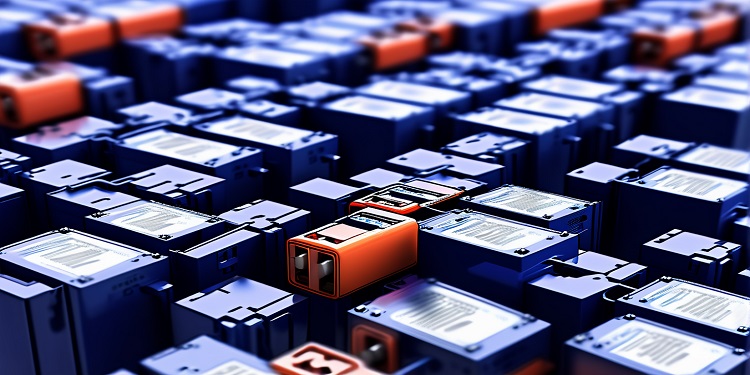Kulr Technology, a US-based power materials startup, has introduced a blockchain-based system designed to verify and trace battery cells throughout their supply chain. The initiative is aimed at enhancing transparency, security, and efficiency, particularly for high-performance batteries intended for advanced applications, including space missions.
NFTs and Blockchain Strengthen Traceability
One of the primary use cases for this new system involves lithium-ion batteries tested under NASA’s WI 37A standard. These batteries are reportedly being prepared for future space-related projects such as the Vestri asteroid mining mission. By leveraging blockchain’s distributed ledger capabilities, Kulr seeks to establish a permanent, tamper-resistant record of testing and verification data, which would remain accessible to downstream users of the batteries.
In practical terms, each battery cell will carry metadata that is minted as a non-fungible token (NFT) on the blockchain. This token is built on Coinbase’s Base Layer 2 (L2) chain, which itself is based on Ethereum, allowing for secure and decentralized management of asset information. Upon purchase, ownership of the battery cell’s NFT can be transferred to the buyer’s digital wallet. Alternatively, the NFT can be redirected to a burn wallet managed by Kulr to indicate completion of the transaction and ownership change. For larger customers, the company will create dedicated wallets to facilitate bulk NFT transfers. Kulr has also developed a proprietary internal tool that interfaces with encrypted company-owned wallets to monitor and manage inventory.
From Bitcoin to Blockchain Logistics
This blockchain-based tracking system follows an earlier move by the company to integrate cryptocurrency into its financial operations. Late last year, Kulr had adopted a bitcoin-based treasury strategy. Building on that experience, company leadership began exploring broader applications within the crypto ecosystem. They concluded that extending blockchain capabilities into supply chain logistics aligned naturally with their operations.
According to Michael Mo, the CEO of Kulr, the shift to blockchain-based supply chain management stems from a desire to bring greater integrity and efficiency to customer operations. He noted that immutable and verifiable custody records could deliver significant value, particularly for aerospace and commercial technology sectors that require high assurance levels.
Blockchain in Supply Chains Gains Momentum
Kulr’s approach echoes a growing trend in the global battery market, particularly in Europe, where regulatory pressure—such as the European Union’s battery passport initiative—has spurred demand for robust product tracking systems. These requirements mandate detailed tracking of raw materials, production processes, usage, and end-of-life management. Several companies are already responding by developing distributed ledger technologies (DLTs) to meet these standards.
For instance, in France, Eviden is working with Switzerland-based Iota to implement its open-source blockchain as part of the Eviden Digital Passport Solution (EDPS), a ready-to-use digital product passport system for electric vehicle batteries.
Operational Gains Beyond Compliance
By decentralizing inventory management onto a blockchain infrastructure, Kulr aims to offer real-time visibility, data security, and auditability across the entire supply chain. This setup minimizes the risks associated with traditional centralized systems, such as system failures or data breaches. Each item recorded on the ledger becomes a timestamped, tamper-proof entry, offering a single source of truth accessible by all stakeholders involved.
In addition to enhancing product authenticity and asset tracking, blockchain integration is expected to streamline auditing processes and reduce operational friction. Kulr believes that its blockchain venture not only supports internal operational goals but also positions it at the forefront of sustainable and verifiable product innovation.



